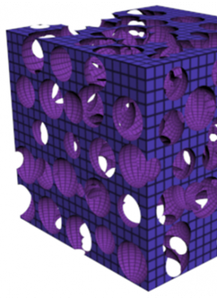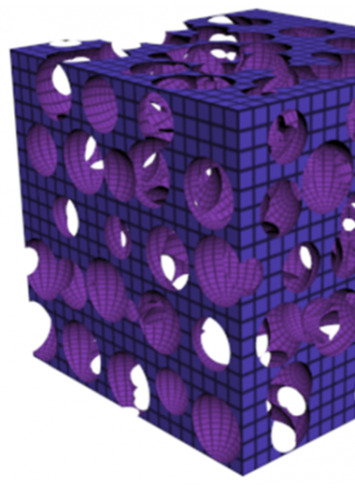PhD fellow in Rational design of hierarchical zeolites for the synthesis of fine chemicals
Project supervisor: Maksym Opanasenko
Project summary
Due to such useful characteristics as molecular sieving effect, high adsorption capacity, adjustable chemical composition zeolites are efficient catalysts of a number of large-scale processes. At the same time, despite showing unique and extremely useful properties, micropores impose restrictions on the mass transport of bulky reactants limiting the use of conventional zeolites in fine chemical or pharmaceutical synthetic applications. Last decade has brought a number of different strategies to accomplish the synthesis of zeolites with additional mesoporosity, i.e. hierarchical zeolites. The advantageous features of hierarchical zeolites (e.g. multilevel porosity, high concentration of acid sites with tunable strength) can be used to further extend the potential of zeolites to new applications in catalysis. The rational design of novel hierarchical (micro-mesoporous) zeolitic materials for catalytic applications is a general aim of proposed PhD thesis. The work will include both 1) the application of well-known synthetic techniques (e.g. removing of framework atoms) allowing fabrication hierarchical materials to novel objects (e.g. Ge-containing zeolites) and 2) further development of innovative approaches invented during last decade. This shall result in the preparation of a broad range of structurally and chemically diversified hierarchical zeolites followed by thorough investigation of structure – acidity – catalytic activity relationship in a set of acid-catalyzed reactions.
Five relevant publications of the research group
„Two-dimensional zeolites: current status and perspectives“, Chem. Rev., 114 (2014), Wieslaw J. Roth, Petr Nachtigall, Russell E. Morris and Jiří Čejka.
„Catalysis by Dynamically Formed Defects in a Metal–Organic Framework Structure: Knoevenagel Reaction Catalyzed by Copper Benzene-1,3,5-tricarboxylate“ ChemCatChem, 6 (2014) Miroslav Položij, Miroslav Rubeš, Jiří Čejka, and Petr Nachtigall.
"A family of complex zeolites with controlled pore size prepared through a 'top down'method", Nature Chemistry 5 (2013) 628, Wieslaw J. Roth, Petr Nachtigall, Russell E. Morriss, Paul S. Wheatley, Valerie Seymour, Sharon E. Ashbrook, Pavla Chlubná, Lukáš Grajciar, Miroslav Položij, Zrnošt Zukal, Oleksiy Shvets, Jiří Čejka.
“The ADOR mechanism for the synthesis of new zeolites” Pavla Eliášová, Maksym Opanasenko, Paul Wheatley, Mariya Shamzhy, Michal Mazur, Petr Nachtigall, Wieslaw J. Roth, Russell E. Morris, Jiří Čejka, “ADOR mechanism for the synthesis of new zeolites”, Chem. Soc. Rev. 44 (2015) 7177.
“Synthesis of ‘unfeasible’ zeolites” M. Mazur, P. S. Wheatley, M. Navarro, W. R. Roth, M. Polozij, A. Mayoral, P. Eliasova, P. Nachtigall, J. Cejka, R. E. Morris, “Synthesis of ‘unfeasible’zeolites”, Nature Chem. 8 (2016) 58-62
Current research grants of the group
Czech-Bavarian Project – Design Principles for Structural Materials – Synthesis, Characterization, Application (2017 – 2020)
"ADORable catalysts" ExPro project GAČR (2019 – 2023)
Primus Research Program of the Charles University project number PRIMUS/17/SCI/22 “Soluble zeolites” (2018 – 2020)
Neuron funding program (project number 31/2017) (2018 – 2019)


